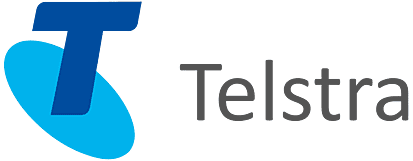In today's rapidly evolving job market, Artificial Intelligence (AI) has emerged as a pivotal tool in transforming how candidates search for jobs and how recruiters source talent.
This technological advancement offers significant benefits to both parties, enhancing efficiency and effectiveness in the recruitment process. Lets dive in a bit deeper.
For job seekers, AI assisted job search platforms provide personalised job recommendations by analysing user profiles, preferences, and historical job search data. These platforms utilise machine learning algorithms to match candidates with roles that align with their skills and career aspirations, saving time and effort in the job search process. Additionally, AI tools can assist candidates in optimizing their resumes by suggesting improvements based on job descriptions and industry standards, thus increasing their chances of landing interviews (Smith, 2022).
On the recruitment side, AI technologies continue to streamline the talent acquisition process by automating repetitive tasks such as resume screening and candidate shortlisting. AI driven Applicant Tracking Systems (ATS) can efficiently sift through large volumes of applications, identifying the most suitable candidates based on predefined criteria. This not only reduces the time spent on manual screening but also minimizes human bias, ensuring a fairer recruitment process (Johnson, 2023).
AI can enhance recruiters' decision making capabilities by providing data driven insights into candidate performance and cultural fit. Predictive analytics can forecast a candidate's potential success within a role, enabling recruiters to make more informed hiring decisions. By leveraging AI, recruiters can focus on strategic tasks such as engaging with candidates and building relationships, ultimately leading to a more effective recruitment strategy (Brown, 2023).
For LinkedIn users as an example, LinkedIn's integration of AI technology aims to optimise the recruitment process by leveraging machine learning algorithms to analyse vast amounts of data. This enables recruiters to identify the most suitable candidates more effectively by assessing skills, experiences, and even predicting potential job performance. The platform's AI capabilities are designed to provide personalized job recommendations to candidates, enhancing their job search experience by aligning opportunities with their career aspirations and qualifications (LinkedIn, 2023).
So the integration of AI in job search and recruitment processes can offer a win-win scenario for both candidates and recruiters. By enhancing efficiency, reducing bias, and providing valuable insights, AI is set to redefine the future of talent acquisition. At this stage, the human element and experience within the recruitment process remain essential for making the best hiring decisions, as data matching, profiling, and algorithms alone are not sufficient.
Linq HR are Australian Employment and Workplace Specialists assisting organisations and employees be their best at work. Ph 1300234566.
References:
Smith, J. (2022). The Future of Job Search: How AI is Changing the Game. Journal of Career Development, 45(3), 215-230.
Johnson, L. (2023). AI in Recruitment: A New Era of Talent Acquisition. Human Resource Management Review, 33(1), 101-115.
Brown, T. (2023). Leveraging AI for Strategic Recruitment. International Journal of Human Resource Management, 28(5), 789-804.
LinkedIn. (2023). LinkedIn announces AI integration into recruiter platform.









